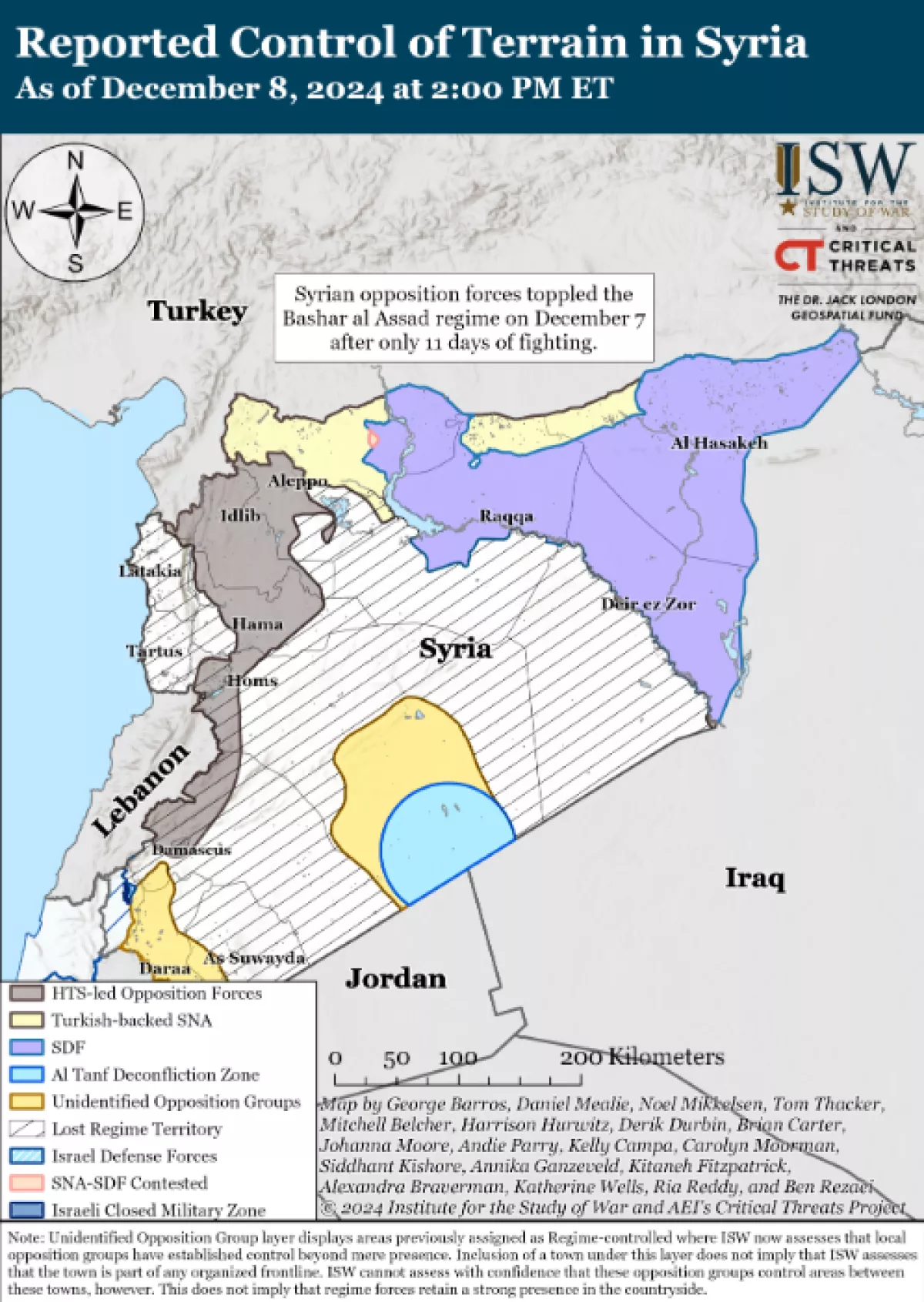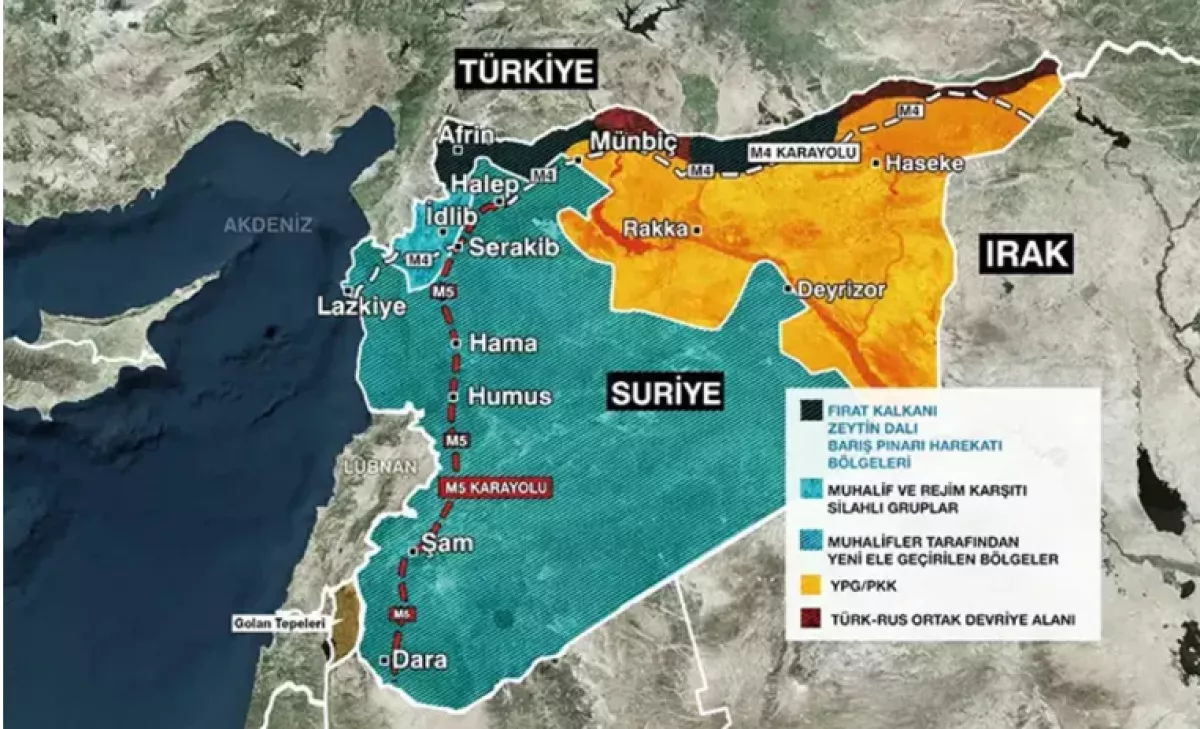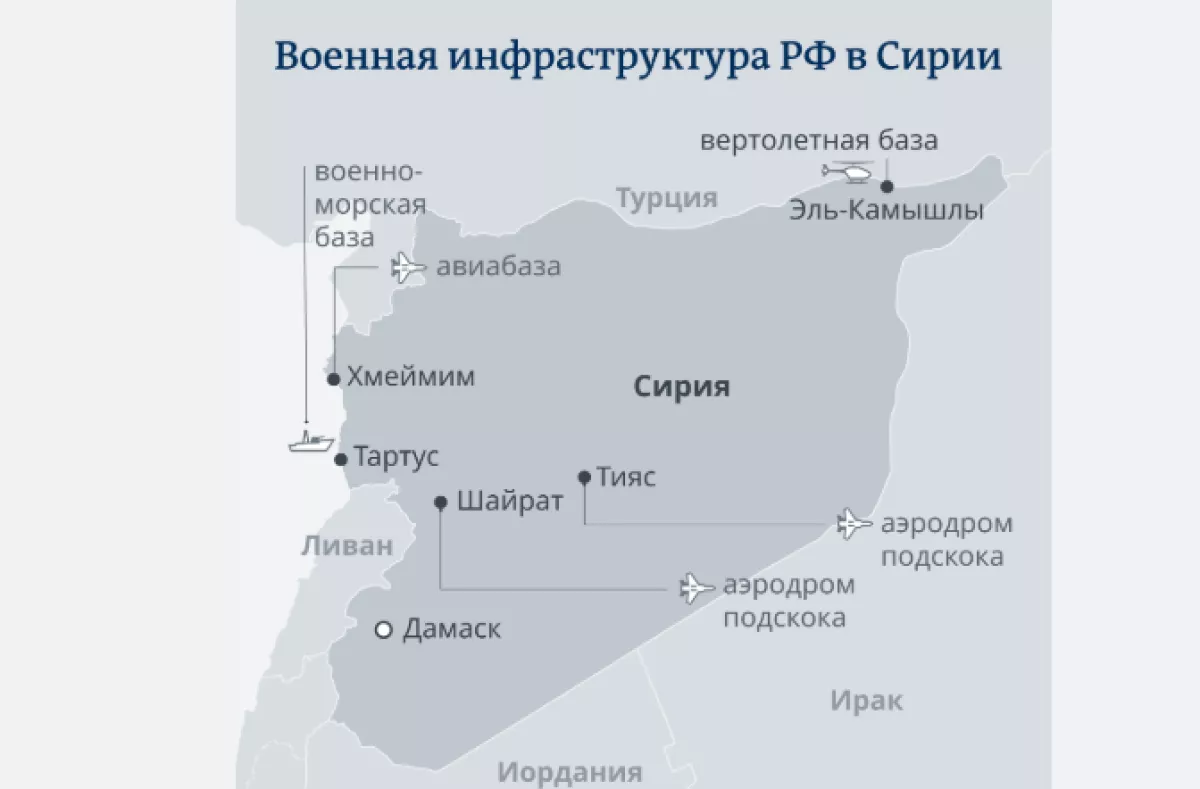ISW: Syrian opposition forces overthrow Assad regime in swift victory Moscow faces strategic defeat
The Syrian regime of Bashar al-Assad was toppled on December 7 after just 11 days of intense fighting, with opposition forces declaring victory as they advanced into Damascus. The Assad regime negotiated its surrender, failing to address the instability to his citizens.
The opposition coalition, led by Hayat Tahrir al-Sham (HTS), reported that even regime loyalists laid down their weapons, particularly in Sayyidah Zeynab, a region long under Iranian influence, Caliber.Az reports citing the Institute for the Study of War (ISW).

HTS leader Abu Mohammad al-Julani entered Damascus on December 8, marking a significant step in consolidating opposition control. Meanwhile, opposition forces swiftly seized regime strongholds along Syria’s coast, including Jableh, Latakia, and Tartus, on the same day. In the capital, the opposition established order, imposing a curfew and protecting public and private property following a recent bank heist.
Despite their victory, the future political structure of Syria remains uncertain. While HTS has begun asserting dominance, it is unclear whether the group will lead the new government. Other factions, including the Syrian Democratic Forces (SDF) and the Turkish-backed Syrian National Army (SNA), have used the chaos of the HTS-led offensive to expand their territories, even clashing with each other.

The SDF and SNA have fought over key areas such as Manbij, where SNA forces claimed full control after intense clashes on December 8. Meanwhile, the HTS-led opposition forces took control of significant areas, including parts of Deir ez-Zor and the Damascus-Deir ez-Zor highway, essential to Iran’s former ground link to Hezbollah. The opposition forces also reportedly captured the strategic Palmyra region on December 7.

The collapse of the Assad regime represents a major political setback for Russia, which has long supported Assad’s government, providing military backing since 2015.
The rapid fall of Assad’s regime undermines Moscow’s credibility as a reliable military partner and threatens its strategic military presence in Syria. Russia’s Tartus naval base has been critical for projecting power in the Mediterranean and supporting Russian interests in the Middle East and Africa. Losing this foothold would disrupt Russian operations, particularly in Libya and sub-Saharan Africa, and damage Russia’s image as a global power.

As the Syrian opposition moves to consolidate control, the geopolitical ramifications for Russia remain significant, potentially weakening its influence in the Middle East and Africa.
By Vafa Guliyeva








